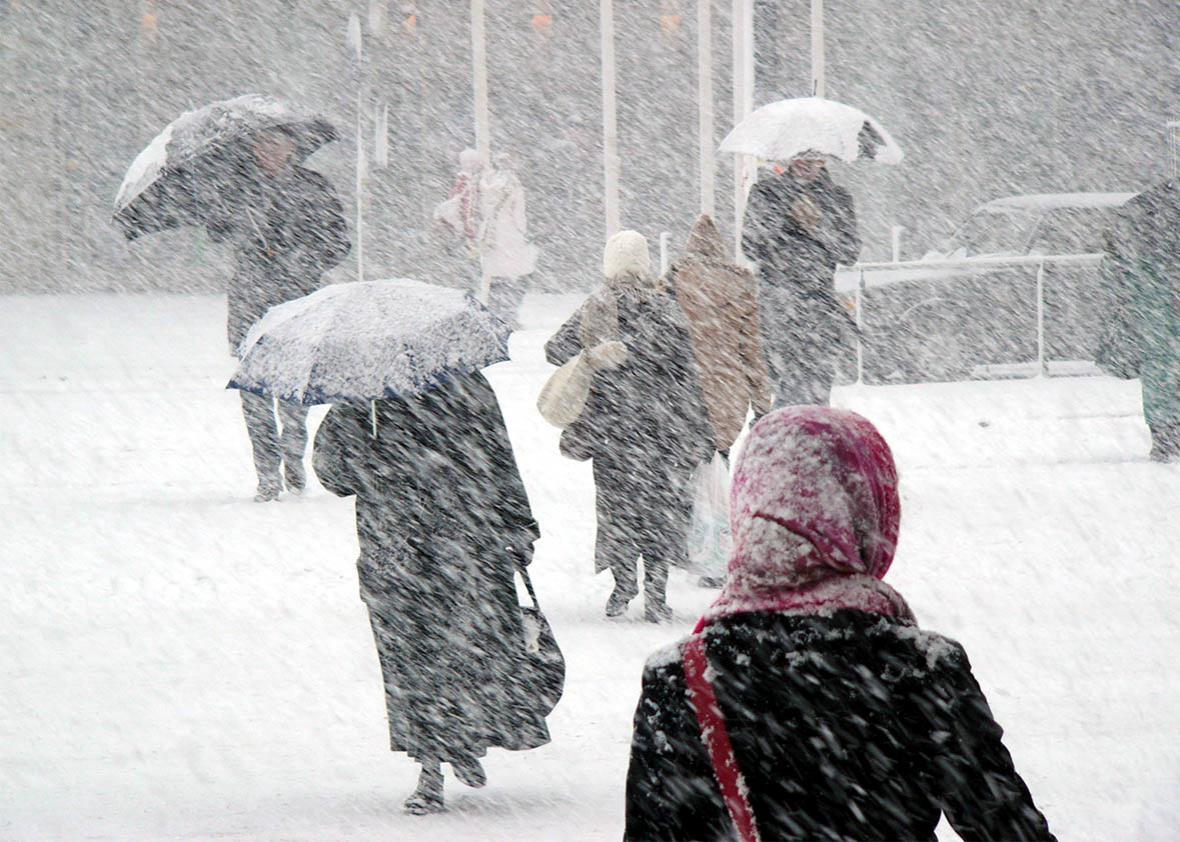As a blizzard whips its way toward the East Coast, I called Paul Kocin, a former Weather Channel personality who is currently a top meteorologist at the National Oceanic and Atmospheric Administration. We talked about the strength of the storm and what makes it special. The interview has been edited and condensed.
How are you?
I’m a tired boy. How can I help you?
What exactly is so unique about this storm?
The main thing is that it appears to be predictable, which is a very dangerous thing to say before it happens!
Does it appear to be predictable because it is so big?
No. We don’t really understand this—eventually we will understand it—but some storms seem to be more predictable than others. Sometimes the models just say, “We are going to predict the same thing over and over again.” This is one of them.
So what do you draw from that?
What do I draw from it? Confidence. Think about it. We have been talking about this thing for days, but it hasn’t existed. I think that is kinda cool.
So in your work generally, you follow things that already exist?
It’s not quite that simple. They can develop and redevelop as they traverse the globe. But oftentimes they are pretty amorphous little nothings and then turn into a big storm.
Where are you right now?
Maryland, close to Washington.
So you are probably saying farewell to your wife and children.
It’s an ex-wife, and I don’t say farewell to my children. I get them all hyped up because they know I like this kind of stuff. I also get a lot of texts and phone calls saying, “What do you think? What do you think?” My son goes, “Is this for real?” One of the worst things I could do was tell them something big was coming and it doesn’t. “You said we were going to get 30 inches!”
People get angry when storms are underestimated and when they are overestimated. So what is your job like on a day like today? Do you look at models?
It’s complicated. I am looking at models. How many models? Many, many models, coming in at different times from many places, constantly updating. With all the new data coming out, hopefully sometime in the near future, there are going to be smart people who figure out how to take all the data and simplify it and put it in a form that most of us normal human beings can get.
I thought you weren’t a normal human being.
I am talking for others.
Like me: I don’t know anything about weather.
That’s fine, but you were able to say models. You are already one up.
I did some Googling before I called you.
The reality is that we have to talk to people like you who put the stuff in print and make it halfway explainable.
But you do think the technology will make it more comprehensible for average people?
Yes, yes. I can’t wait. If it continues like this, I am going to go crazy.
So right now we are looking at D.C. getting completely dumped on. What about New York?
I think the impact in New York is still questionable. We are not quite sure. I think the effects should be shorter-lasting. It might be intense, or not be intense, but the impact will be less than here. The impact here is a nonquantity: It is going to be high. It is not often we can say that.
What is it like around your office today? Are people giddy?
It is giddy but because we work in a large organization, we had a lot of media come here and a lot of calls, and a lot of collaboration with local forecast people. We are giddy. But the reality is that we are swamped.
2015 was the hottest year on record. What do you see as the connection between that and these extreme storms?
I am certainly no expert on global climate change. That said—it seems to me that the storms we have been getting in the Northeast are awfully big. In other words, they are widespread, and the snowfall is unusually heavy. This has been occurring for a while now. It fits actually. It fits the notion that if the climate changes, there is more moisture in the air, and that gives you more precipitation and snow.
I am in California, where it is damn nice. I hope you all survive.
We’ll survive.
